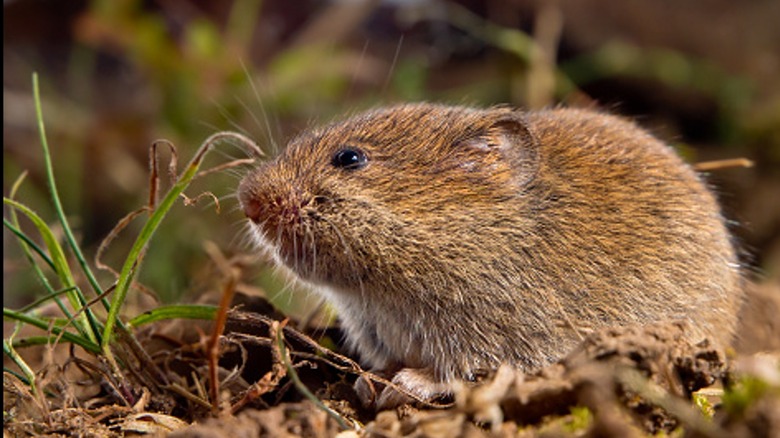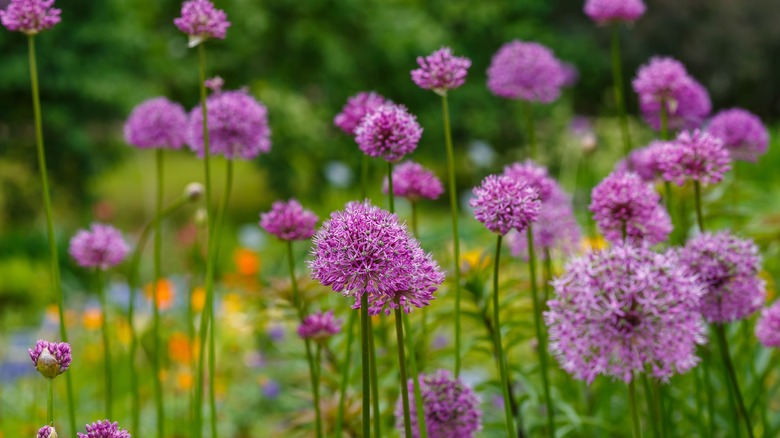Keep Voles From Eating Your Bulbs By Planting This Beautiful Purple Flower
Glancing around your garden one day, you spot a skittering critter. Suddenly, you spot it again, and you wonder how a hamster got into your yard. However, despite its strong resemblance to a domesticated hamster, you've likely spotted a vole rather than someone's escapee pet. These tiny herbivores love to munch the day away in your garden, though one particular type of plant is known to deter their voracious appetites — alliums.
Voles are especially known to live in the northern United States and make easy meals out of flower and veggie gardens alike, especially in the spring and fall, which are the best times of year to spot them. It's possible a vole may even be what's killing your hydrangeas. They aren't especially picky, given the multitude of options your garden provides, though they aren't big fans of daffodils or mint.
Strong smells from those plants often do the trick, when it comes to keeping these little fuzzy visitors from turning your garden into a buffet. That's also why they're so turned off by alliums. Intense odors must be even worse when you're itty bitty with a strong sense of smell.
Ornamental alliums do the trick
Don't let their appearance fool you, the vibrant purple ornamental allium plant may resemble a lilac but its odiferous lingering will tell you otherwise. Just like their cousins garlic and chive, these pretty alliums are actually onions and should repel voles when planted your garden. Also known as oriental onions, these purple beauties with their pungent odor will keep other pests out of your garden as well like deer and other rodents.
Research has shown that, when given the option to freely eat plants, the voles made it clear that they prefer others ahead of ornamental allium. On the other hand they absolutely devoured the tulips they were offered. Plus, if you aren't a big fan of the purple ornamental allium, you're in luck. There are hundreds of varieties in all kinds of shapes and colors if that appeals more to your gardening aesthetic.
Your best bet is to plant these in your garden, especially near plants the voles are likely to snack on. They're best planted in the fall because they actually like the cold and will go dormant before reemerging again the next year. If you aren't sure what kind of animal is actually eating your garden, be sure to read up on how to tell. It may not be a vole after all!

